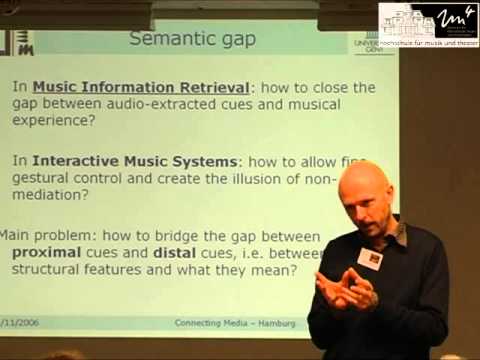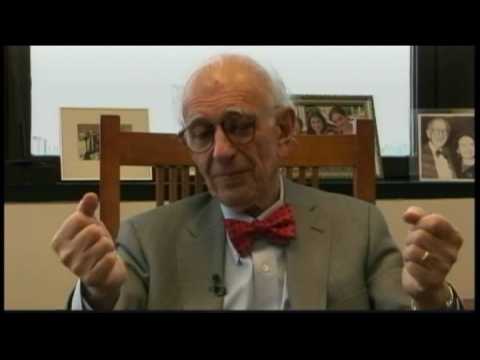Marc Leman
Embodied music cognition – a new approach to mediation technologies
There are two important trends in modern science that will have a large impact on music research and media research in general. The fist trend concerns the shift from disembodied cognition to embodied cognition. Embodied music cognition offers a framework for dealing with music, based on a hypothesis about the relationship between musical experience (mind) and sound energy (matter). In this mind/matter relationship, the human body is seen as a biologically designed mediator which transfers physical energy to an ontology of action-oriented meanings, that is, to a mental level in which experiences, values and intentions form the basic ingredients of music signification. Also the reverse process is possible, namely, that the human body transfers an idea, or mental representation, into a material or energetic form. This two-way mediation process is largely constrained by the body, which is assumed to play a central role in all musical activities. The recent focus on multimodal processing using different types of sensing technologies offer a straightforward approach to embodied music cognition. It is based on measurement of gestures and adaptation of technology to action-oriented intelligence. Under certain conditions, the natural mediator (the human body) can be extended with artificial mediators so that mental activity naturally extends to the new environment that is covered by the artificial mediator. The second trend is the shift embodied music cognition to social music cognition. A better understanding of the natural mediation between human mind and brain, through the human body, will lead to a better understanding of social cognition, that is, how music has impact on groups of people. Social music cognition brings in the interactions among listeners, among players, and between players and listeners and opens up a new fild of technological involvement that is related to social computing. Music research, given the close relationship between perception and action, and between the individual and the social, is at the cutting edge of new explorations in science and technology with a number of applications in fields ranging from entertainment to music therapy, interactive music systems and music information retrieval. This lecture will give a number of examples of recent research results in the field of embodied and social music cognition.
Biographie
Marc Leman is professor in systematic musicology at Ghent University, Belgium(Gent). He is head of the Dept. Art, Music, and Theater Sciences and director of IPEM. His research activities deal with questions related to musical meaning formation, the effect of music on human cognition and emotion, the description of musical content, and the understanding of gestures, musical imitation and corporeal resonance. His research is focused on finding regularities in human sensory, perceptive, cognitive, synaesthetic/kinaesthetic, social and emotional/affective information processing, using methods that bridge the gap between natural and cultural sciences.
ZM4
Source



